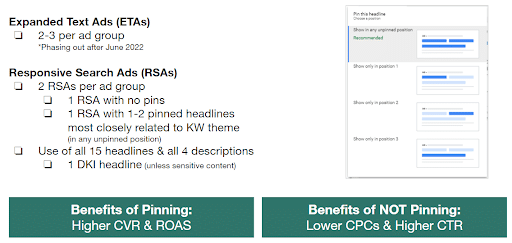Phasing Out Broad Match Modified: What Does It Mean?

Recently Google announced they are changing the way broad match modifier (BMM) keywords function, and ultimately will be phasing them out. Here’s our take on how this will affect our accounts and what we’re doing to work with this change.
When it comes to Google advertising, our job as a digital marketing agency is to make sure we’re getting in front of the right consumer. One of the ways we do this is bidding on the keywords that prospective customers are using to search. We do this by using the exact match keyword, phrase match keyword, and broad match keyword.
- Exact Match: ads might show on searches that have the same meaning as the keyword. This is the most cost effective keyword match type. However, due to its restrictive nature, it can miss out on broader relevant searches.
- Phrase Match: ads may show on searches that include the meaning of the keyword. With phrase match, you can reach more customers, while still showing your ads to customers who are most likely searching for your product or service.
- Broad Match: ads might show on searches that only relate to the keyword. Broad match keywords are the loosest matching option and can quickly become expensive due to the wide range of possible matches. To help deliver relevant matches, broad match type takes into account the user’s recent search query, the content of the landing page as well as other keywords in an ad group to better understand intent.
What To Expect
In February, Google updated phrase match to behave similarly to BMM in order to simplify keywords and to make it easier to reach customers. With this update, phrase match keywords now have the same matching behavior as broad match modifier. For example, the phrase match keyword “moving company San Diego to Los Angeles” will still cover searches like “affordable moving company San Diego to Los Angeles,” but no longer appears for searches where users are looking to move from Los Angeles to San Diego. Previously if a user searched “moving company Los Angeles to San Diego” the BMM keyword would trigger, but this is no longer the case with the new phrase match update.
Starting in July 2021, BMM keywords will no longer be able to be created, but you will still be able to achieve the same matching capability through phrase match. As for current BMM keywords in your accounts, these will still continue to serve but will be using the new keyword matching behavior introduced with this update.
How Does This Affect You?
The simplest answer is, it shouldn’t, necessarily. If you’re currently running broad match keywords you will be able to continue running them. The current campaigns running a broad match modifier keyword will continue to do so, just under the new matching rules. This is key as you’ll still have your historical data from the keyword level. This new matching for a phrase keyword will be more inclusive of expansion by opening the potential targeting of your phrase keywords. With less likelihood of a searcher triggering your ad for an irrelevant keyword, the new keyword match type succeeds where traditional broad match modified lacked. Matching the search intent with the keyword has often been a struggle for BMM due to the all-inclusive nature of having a variable keyword target.
When Google makes changes, traditionally the first thought process is usually negative. However here, there is optimism in the air as to how they’ve described the new keyword matching makes sense in a variety of ways:
- It reduces potential wasted spend.
- Will expand your current phrase match keywords to be more inclusive of more potentially converting search terms.
- Makes your campaigns more easily manageable.
As automation takes over, and we lean into more machine learning and AI, match types are sure to fluctuate, as they always have.
Staying Ahead of Google’s Changes
Although Google Ads services have reassured their users that this update should not hinder performance, the best approach is to prepare for the change to come and remain open-minded. At Power Digital, our Paid Media experts have identified a few tactics that will allow us to stay ahead of the changes. Advertisers who are using phrase match keywords in their strategy need to keep in mind that this transition in July will increase the amount of traffic affecting their data. The best way to get ahead and improve results is to add numerous negative keywords, which will block bad traffic and reduce waste. Excluding matches that you do not want will in fact help save your budget and improve performance. Last but not least, any Google accounts that are linked to Bing (Microsoft Ads) will need to be unlinked at the keyword level to ensure that the changes Google Ads is making to broad match modified will not impact the Bing (Microsoft Ads) performance.
Our Editorial Standards
Reviewed for Accuracy
Every piece is fact-checked for precision.
Up-to-Date Research
We reflect the latest trends and insights.
Credible References
Backed by trusted industry sources.
Actionable & Insight-Driven
Strategic takeaways for real results.





